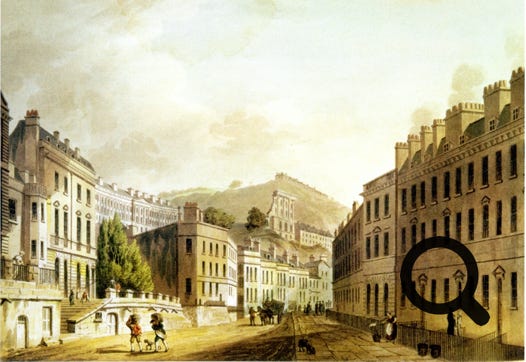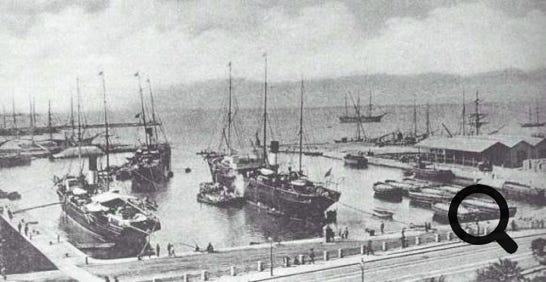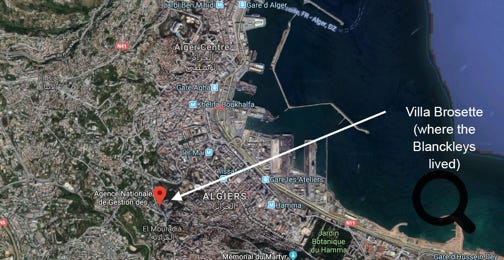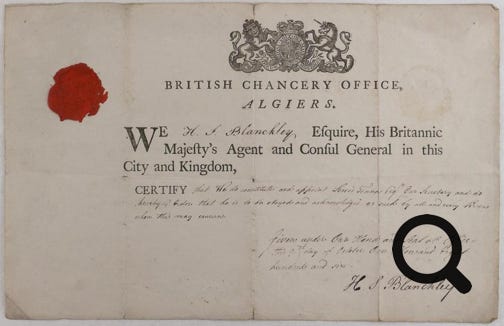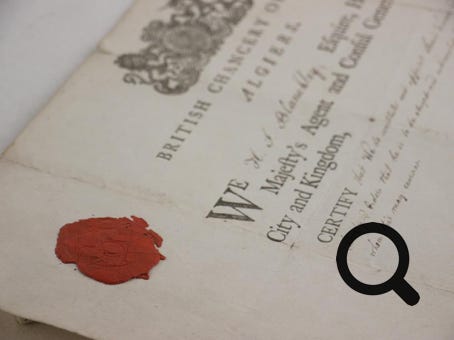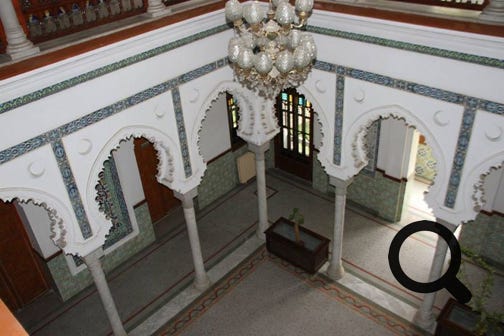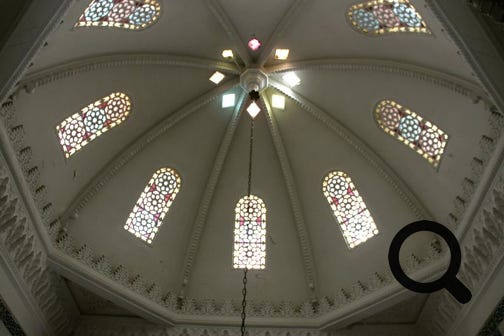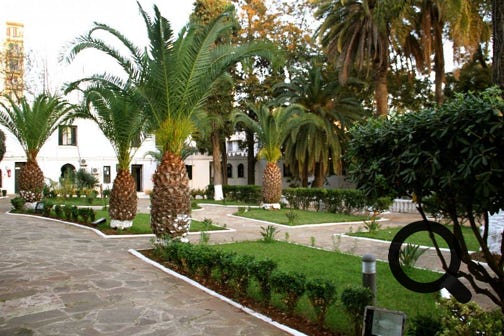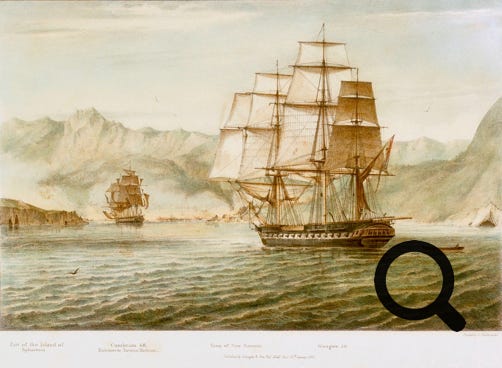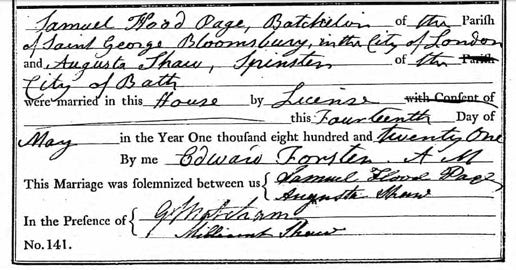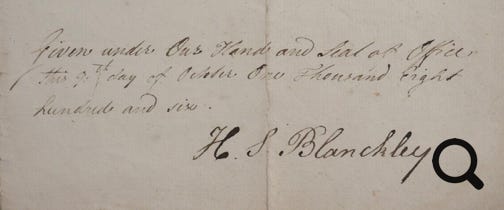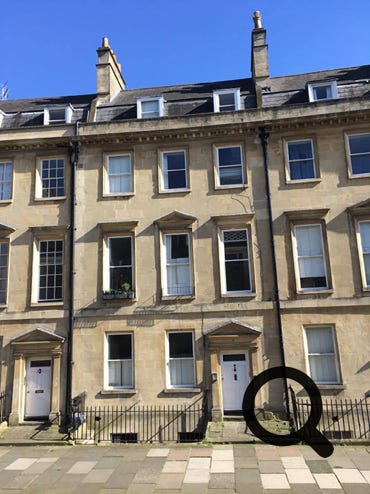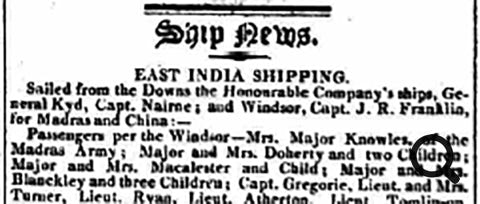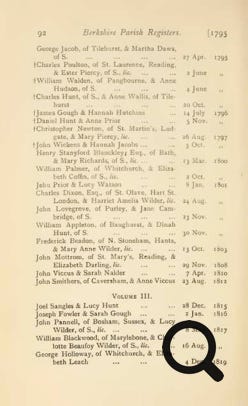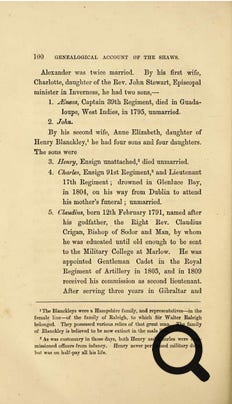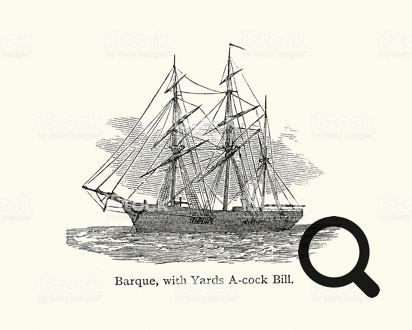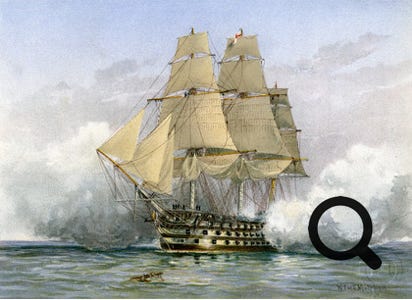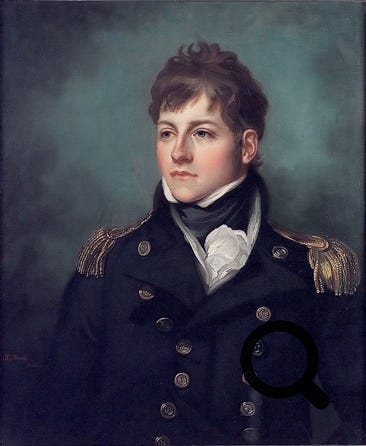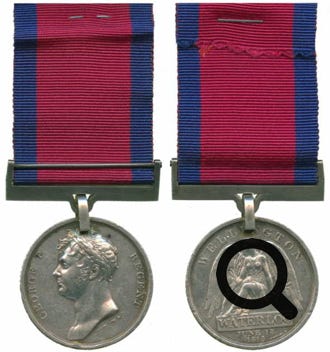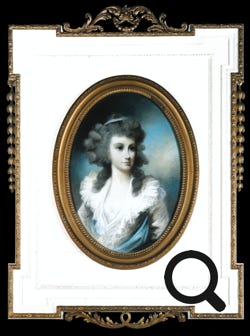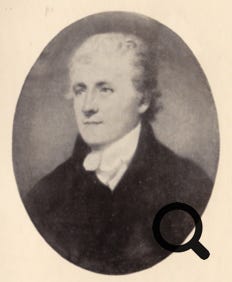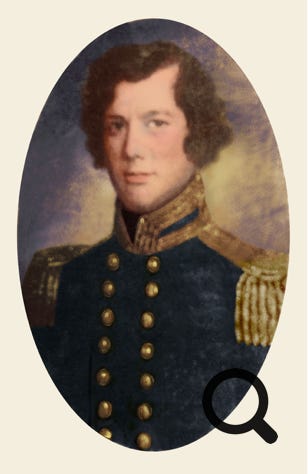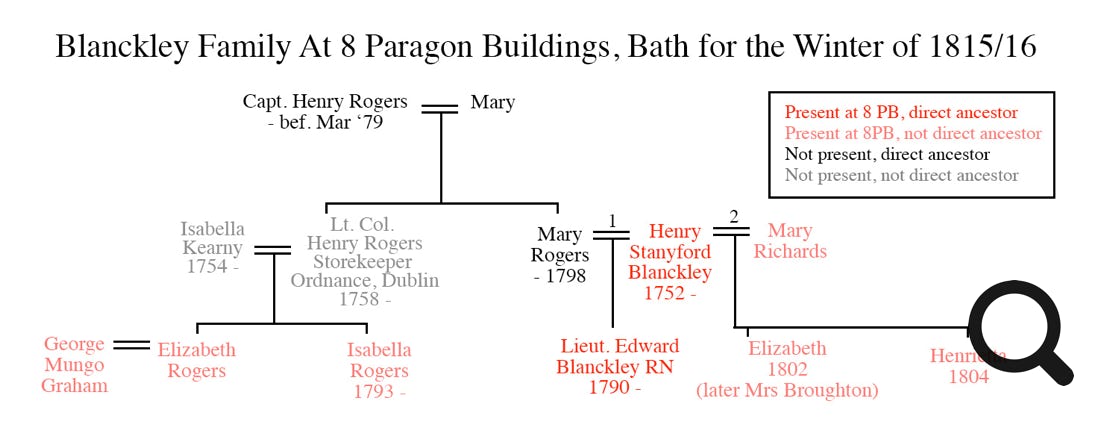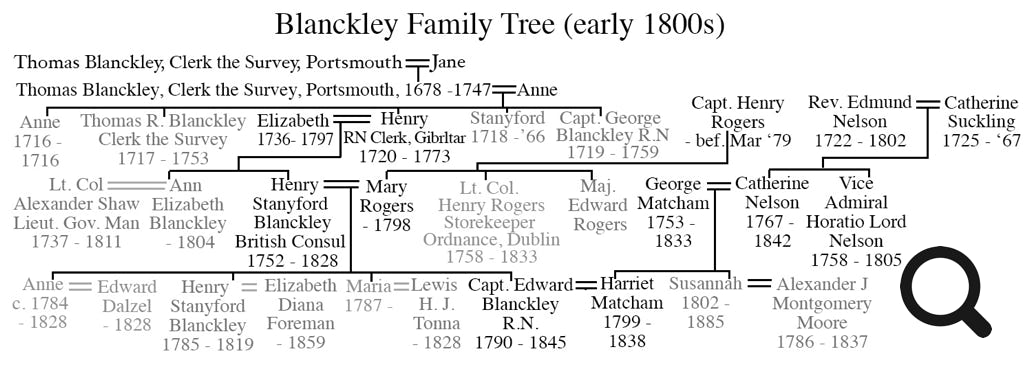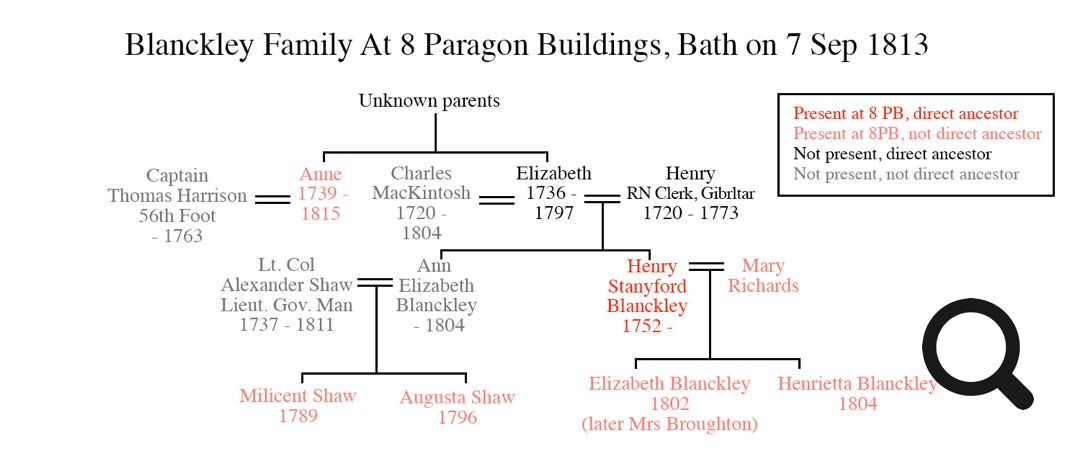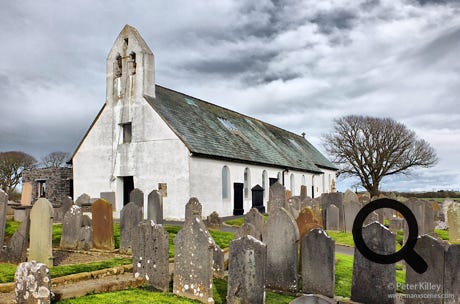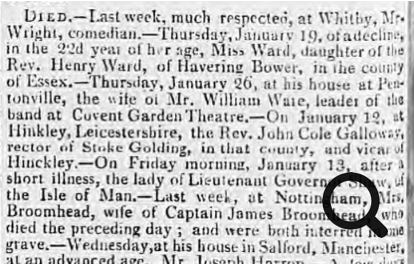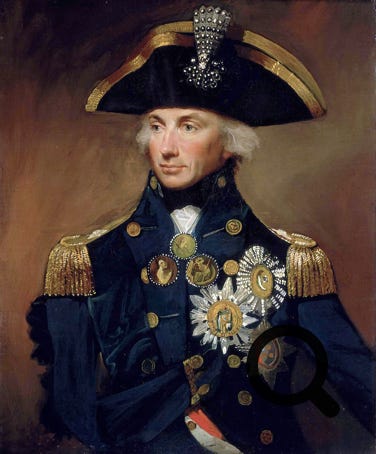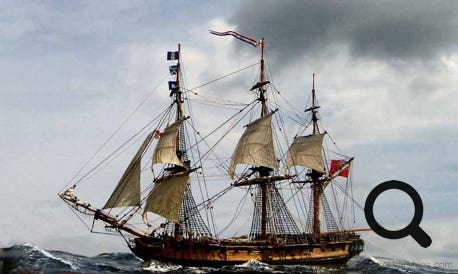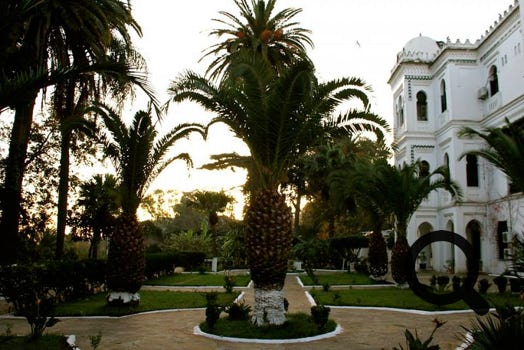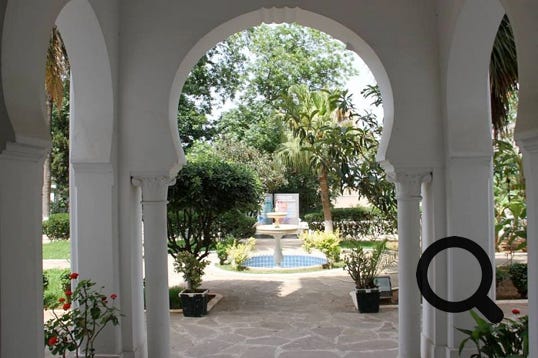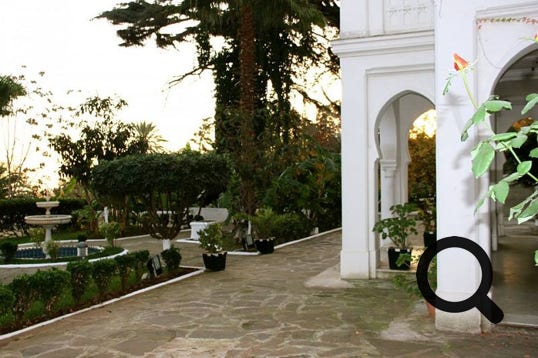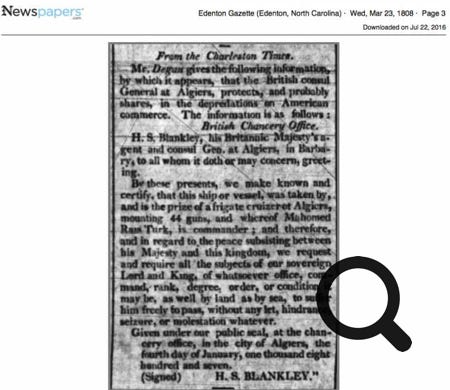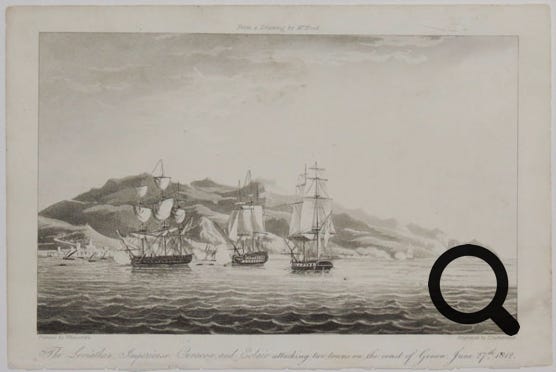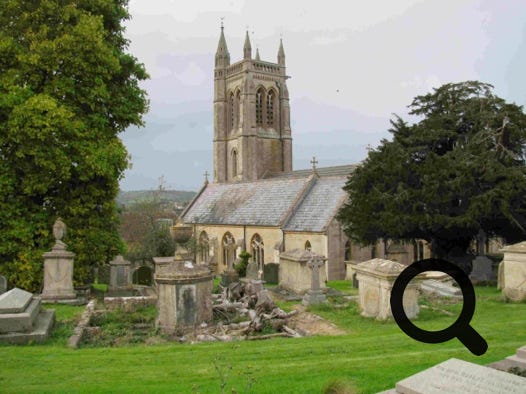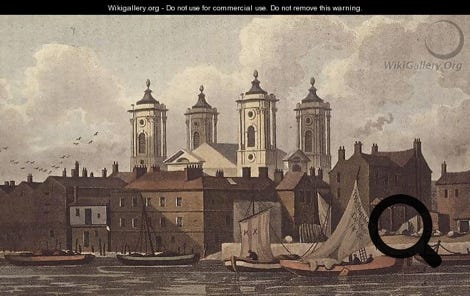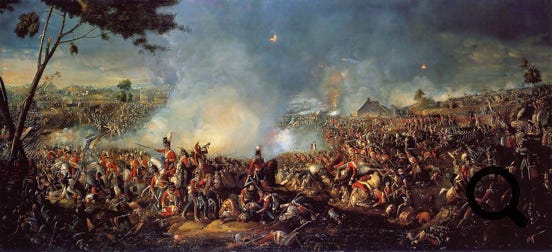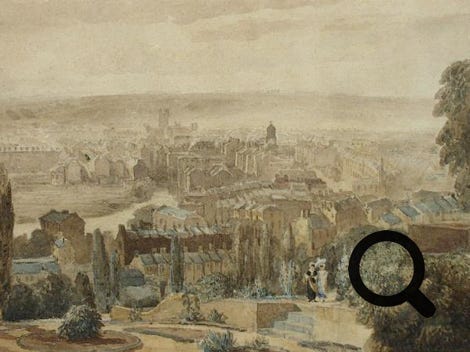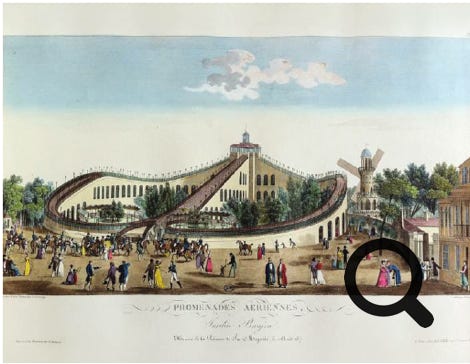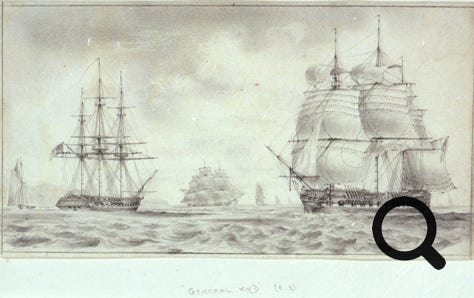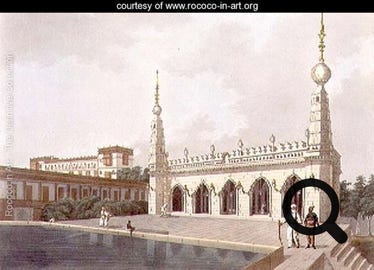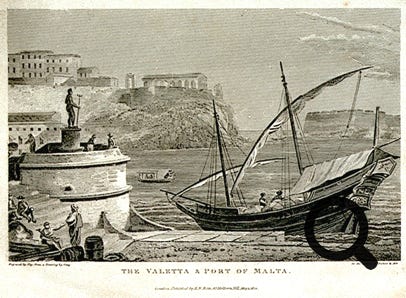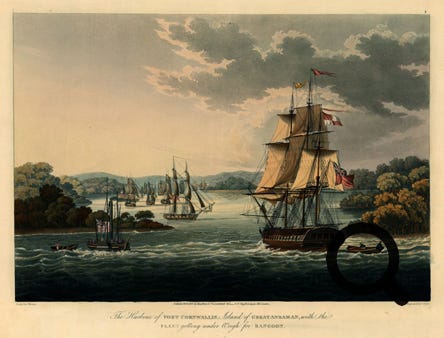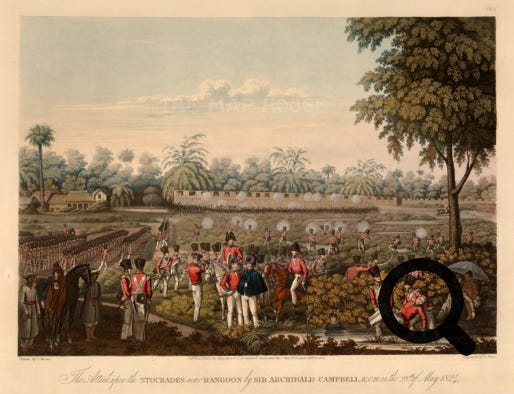Blanckleys 1600s - 1749 Blanckleys 1750 - 1799 The Voyage of Pylades 1831 - 1834 Blanckleys 1832 - 1864 Blanckleys after 1864
Axford and Paragon Buildings, Bath, John Claude Nattes, 1804 victoriagal.org.uk
First name(s): ALEXANDER
Last name: SHAW
Birth year: 1740
Death year: 1811
Death day: 29
Death month: Jul
Age: 71
Dedication: St Swithun
Place: BATHFORD
Type of memorial: Flatstone
County: Somerset
Country: England
Notes : esq., late Lieut. Governor
of the Isle of Man
Reference: 148
Record set: Somerset Monumental
Inscriptions
Source: findmypast.co.uk
HMS Glasgow and Cambrian at the Battle of Navarino 20 October 1827 http://maltaramc.com/articles/contents/britnavhosp.html
Name: H. S. Blankley
Gender: Male
Age: 35
Birth Date: 1784
Death Date: 2 Nov 1819
Burial Date: 2 Nov 1819
Burial Place: Arcot, Madras, India
FHL Film Number: 521837
Source: ancestry.co.uk
Spurce: RG 33: Foreign Registers and Returns, 1627-1960. Piece 063: Paris: Marriages, 1818-1828
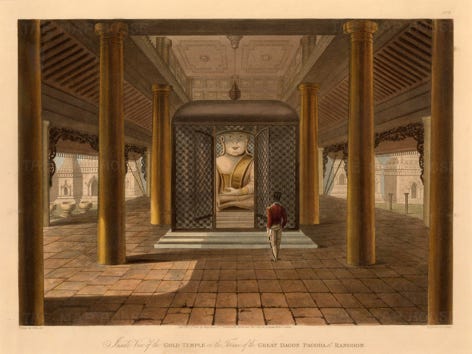
Edward Blanckley joins the Royal Navy
Victorian Barque, with yards A-cock Bill royalty-free stock vector art www.istockphoto.com
HMS Victory, British warship by William Frederick Mitchell www.magnoliabox.com
Cagliari www.pintrest.com
Google satellite view of Villa Brosette
Villa Brosette: the Blanckley’s residence in Algiers http://www.skyscrapercity.com
Villa Brosette: the Blanckley’s residence in Algiers http://www.skyscrapercity.com
Villa Brosette: the Blanckley’s residence in Algiers http://www.skyscrapercity.com
George Miller Blight (1780–1834) in 1808, painted by Mather Brown Wikipedia
Midshipman Edward Blanckley’s early career
Name: Henry Stanyford. Blanchley (sic)
Gender: Male
Marital Status: Bachelor (Single (Male))
Marriage Date: 4 Oct 1810
Marriage Place: Halifax, Halifax, Nova Scotia, Canada
Marriage Registration Year: 1810
Spouse: Elizabeth Diana Foreman
Source: www.novascotiagenealogy.com
8 Paragon Buildings, Bath photographed in 2017 by Ana Bullock
First name(s): ANN
Last name: HARRISON
Birth year: 1739
Death year: 1814
Death day: 2
Death month: Jan
Age: 75
Dedication: St Swithun
Place: BATHFORD
Type of memorial : Wall tablet
County: Somerset
Country: England
Note: widow of Captain Harrison, 56th Regt.,
died at Bath.
Reference: 23
Record set: Somerset Monumental Inscriptions
Source: findmypast.co.uk
Above Kitty (when younger) and George Matcham
Above Morning Post 22 February 1819
Name: Charles Brown Blankley
Gender : Male
Age: 0
Birth Date: 1819
Death Date: 26 Jul 1819
Burial Date: 26 Jul 1819
Burial Place: Arcot, Madras, India
FHL Film Number: 521837
Source: ancestry.co.uk
Edward & Harriet’s first child is born
Name: Edward Nelson Blanckley
Gender: Male
Baptism Date: 30 Mar 1822
Baptism Place: All Saints, Southampton, Hampshire, England
Father: Edward Blanckley
Mother: Harriet
FHL Film Number: 1596323
Source: ancestry.co.uk
Interior of the Golden Temple, Rangoon at the time of the British victory (many more images and an account of the battle are also available on this page) https://blog.themaphouse.com/2014/07/15/eighteen-views-at-and-near-rangoon/
Restored photo of Edward Blanckley’s now lost portrait. Style family collection
Death of Henry Stanyford Blanckley (my 4th great-grandfather)
Edward promoted to Lieutenant RN
(6 Feb 1815)
Death of Edward’s sister Anne Dalzel née Blanckley
HSB’s plans to emigrate to Europe
Blanckleys 1800 - 1830
13 Mar 1800
Henry Stanyford Blanckley remarries a second Mary: Mary Richards at Sulham, Berkshire, England (left)
HSB’s name is given as “Henry Stanyford Blanckley, Esq., of Bath,”
1802
Henry Stanyford Blanckley and Mary née Richards first child, Elizabeth is born on the Isle of Man
(year and place of birth given in 1851 census)
17 Apr 1802
Both newborn Elizabeth and 12ish-year-old Edward are baptised in Malew Parish Church, Isle of Man (left). There is a note that Edward was ‘received’ into church, meaning he’d been baptised previously, but not in a Church of England church, suggesting this was his first visit to Britain.
Edw.d & Eliz.th children of Edw.d Blankley Esq.r & Mary his wif. being [???} and Rec.d
The curate appears to have named their father as Edward not Henry – according to an Isle of Man archivist,clerical misnaming was not uncommon.
This was HSB’s sister Ann Elizabeth Shaw’s parish
C. 1804
Henry Stanyford Blanckley and Mary née Richards second child, Henrietta is born on Minorca
Year and place of birth given in 1851 census
13 Jan 1804
Henry Stanyford Blanckley’s sister Ann Elizabeth Shaw dies after a short illness (right and below).
Alexander was twice married.
….By his second wife, Anne Elizabeth, daughter of
Henry Blanckley, he had four sons and four daughters.
The sons were
…. 4. Charles, Ensign 91st Regiment, 2 and Lieutenant
17th Regiment ; drowned in Glenluce Bay,
in 1804, on his way from Dublin to attend
his mother's funeral ; unmarried.
Alexander Mackintosh Shaw, Genealogical account of the Highland families of Shaw, London : Privately printed by W.P. Griffith & Son,1877. p. 110 (available digitally on digital.nls.uk/histories-of-scottish-families) ––page image: left
1804
Henry Stanyford Blanckley’s widowed brother in law Alexander Shaw retires as acting Lieutenant Governor and Deputy to the Governor of the Isle of Man
Source: wikipedia
It seems likely Alexander Shaw’s retirement was prompted by his wife’s death
21 Jul 1804
Probate of Charles MacKintosh of Paragon Buildings, Bath’s will (Henry Stanyford Blanckley’s father in law).
He names his deceased wife as formerly the widow Blankley and her children as ‘Henry Stanyford Blankley and Ann Elizabeth Blankley now Mrs Shaw’. He also states at the top of page 4:
The house I live in household furniture
I desire that my carriage and horses may be sold immediately after my death and all my household furniture and the liquors in my cellar within the space of three months thereafter and neat product remitted for my account to my friend Mr Simon Fraser of Kings Arms Yard London excepting my plate the whole of which as it belonged to my late wife before our marriage I leave to her two children, my step son and step daughter aforesaid in equal shares and be it observed that I delivered to my stepson Henry Blankley the use of a tea kettle and lamp which must be considered as part of his half share thereof.
Charles MacKintosh bequeaths the bulk of his annuities to his sister in law Anne Harrison (HSB’s maternal aunt), saying ‘whose attention to me and my interests has always been such as I never can sufficiently acknowledge’ and states that she can continue living in his leased house in Paragon Buildings, Bath for 3 months after his death.
Anne Harrison (and HSB) turn up at 8 Paragon Buildings 10 years later and it seems likely this is the same house.
Source: England & Wales, Prerogative Court of Canterbury Wills, 1384-1858 Ancestry.co.uk
17 Jan 1805
Edward Blanckley joins the Royal Navy
on Madras 54, under Captain Charles Marsh Schomberg as Midshipman (A_Naval_Biographical_Dictionary/Blanckley,_Edward) guarding the coast of Malta
The Blanckley’s firstborn, Anne was married to Maltese resident, Edward Dalzel
Late Jan 1805
The Blanckleys attempt to flee Minorca to Malta with Nelson’s aid: Minorca’s Spanish Governor had grown increasingly hostile. Horatio Nelson (whose family were friends with the Blanckleys) offered a ship, Seahorse for their evacuation, but the ship was delayed and the Spanish Governor forced the family onto a ‘wretched barque’ which HSB crammed with furniture, a menagerie of pets (including a pair of matched coach horses) and hung with international flags to give it a neutral, diplomatic look. They ran into the British fleet and Nelson purportedly declared, ‘good God, it must be Mr Blanckley and the Seahorse failed him!’ He ushered Henry on board Victory, laughingly calling their barque the ‘Blanckley ark’. Nelson invited HSB onto Victory and provided him with papers for safe harbour in Cagliari until a ship could take them on to Malta (see extract of Six Years Resident in Algiers below).
28 Mar 1805
The Blanckleys quarantined at Cagliari
Nelson wrote to HSB at Cagliari:
I send the first transport to receive your baggage and to carry you to Malta […] your long quarantine at Cagliari must have been very irksome.
Auckland Libraries heritage collections, MS 18, Letter from Horatio Nelson to H. S. Blankley. March 28th, 1805
By 1806
HSB and Mary née Rogers’s daughters Ann and Maria are married. Elizabeth Broughton née Blanckley writes at the time when she was four and newly moved to Algiers:
I was my most indulgent mother’s first-born (although I ranked but as my dearest father’s third daughter,) and from a very early period, by the marriages of my sisters, I became the eldest daughter of the house.
Six Years Residence in Algiers, Mrs Broughton,1839, page 3
1806
HSB becomes British Consul to Algiers. They lived in a lavish Moroccan-style clifftop house called Villa Brossette
9 Oc 1806
HSB issues a certificate appointing Lewis Tonna (his son in law) as Secretary for the British Chancery Office in Algiers (pictured left). Text accompanying the certificate in Wayfarer’s Bookshop below:
The British Consul Henry Stanford Blanckley resided in this villa with his family from 1806 to 1812.
Algiers, 9 October 1806. Oblong Folio (ca. 25x39 cm). Official printed form of the British Chancery Office in Algiers, with woodcut arms at head; finished in manuscript in secretarial hand and signed by Blanckley in the right lower corner. Brown ink on laid paper. With official red wax seal on the left margin. Overall a very good document. "We, H. S. Blanckley Esquire, His Britannic Majesty's agent and consul general in this City and Kingdom, certify that We do constitute and appoint Lewis Tonna Esqr. Our Secretary and do hereby Order that he is to be obeyed and acknowledged as such by all and every Person whom this may concern". Issued at the British Chancery Office at Algiers in 1806 and signed off by the then consul general Henry Stanyford Blanckley, this document appointed Lewis Tonna as his secretary. Blanckley, an army Mayor, had taken part in the siege of Gibraltar in 1782 before a nineteen year stint as consul in the Balearic Islands. He was the British Consul General in Algiers in 1806-1812 and went on to play a role in shaping British policy towards the Barbary Coast. Lewis Hippolytus Joseph Tonna (d. 1828) later became a British vice-consul in Algiers and at Bona, vice-consul for Spain and consul for the Kingdom of the Two Sicilies in Liverpool. He married Blanckley's daughter Maria, and their son Lewis Tonna (1812-1857) was a polyglot, fellow of the Society of Antiquaries, fellow of the Royal Geographical Society, and evangelical protestant campaigner.
Villa Brossette, currently occupied by the ARPC (National Agency for the Management of Achievements of Major Cultural Projects), is located at 19 Avenue Souidani Boudjemaa Algiers; with its garden and other outbuildings it occupies a plot of 8600 m2, it is bounded on the North East by the Boulevard des Martyrs and South West by Souidani Boudjemaa Avenue.
Description of the Blanckley’s life there extrapolated from Six Years Resident in Algiers below)
Although the house was built in the Moorish manner, around an open courtyard, much of it was decorated in the English style….
Away from the cliffs, the house was surrounded by groves of fruit trees – pomegranates, almonds, orange and lemon trees, as well as the bergamot, or sweet lemon – in which nightingales sang. The fig trees bore fruit of such perfection that it had hitherto been considered fit for the Dey alone, while the apricots were so abundant that two of their pigs died from a surfeit of them. (It was not only the pigs who became over-excited at the prospect of so much wonderful fruit: a local synonym for apricot was ‘kill-Christians’.) Their vegetables grew in prodigious quantities, too. In her potager Elizabeth’s mother grew cabbages, cauliflowers, broccoli, carrots, turnips, onions, leeks, peas, french beans, haricots blancs, artichokes, calabash, pumpkins, cucumbers, musk and watermelons, aubergines, tomatoes and several kinds of capsicums, okra, strawberries and potatoes.
The Blanckleys kept so many pets that their ‘Garden’ also became something of a Noah’s ark. Their animals included a spaniel, a tortoise, a hare, a silver fox, a lamb, a tame gazelle and a goat called Phyllis. Mr Blanckley tried to keep wild cats, but they did not survive captivity. Nor did their pet lamb, which was eaten by jackals; nor their father’s eagle, for whom an even worse fate was in store. One day, mistaking the bird for a guinea fowl, the cook killed it, plucked it, and hung it in their already well-filled Christmas larder. If Elizabeth and her sister had not missed it, no one was in any doubt that it would have been served up at table.
…It was against this background of domestic harmony that the Blanckleys’ most important work was carried out. While they survived the worst excesses of the Dey’s regime, some of their countrymen were not so fortunate. One of Mr Blanckley’s main duties in this ‘very nucleus of piracy’ was to claim any British national taken into slavery by the Algerians. He was able to do this under the terms of a treaty agreed with the Turkish Sultan in 1761, known as the Ottoman Capitulations, which also gave European consuls wide-reaching powers of jurisdiction over their countrymen in both civil and criminal cases, liberty of movement around the Dey’s dominions, freedom from restrictions in commerce and religion, and (in theory at least) inviolability of domicile. After these captured Britons had been identified and set free, it was to Mrs Blanckley that the care of these unfortunates most frequently fell. Sometimes they were English sailors, or a handful of travellers on board a foreign passenger ship which had fallen into the hands of Algerian pirates. Sometimes they were the crew of an English merchant vessel captured on the high seas with its cargo of cotton, opium or oil. If the captain of one of these ships (who was often accompanied by his wife and family) was not properly insured his capture would spell certain ruin. At least he would have been allowed to keep a change of clothing; the rest of the crew on board such vessels were routinely stripped of everything they possessed, right down to their underclothes. Mrs Blanckley grew adept at making up not only extra beds, but also new shirts with which to clothe her destitute countrymen. On one occasion fifteen Englishmen were shipwrecked on the Barbary Coast, at a place called Gigery. The Blanckleys first received knowledge of their capture when a small piece of bluish-white paper was delivered to their house, much creased and soiled, on which a few scarcely legible lines had been scratched with charcoal and water. It told a distressing but all too familiar tale. The ship belonging to these English mariners, laden with a cargo of pigs of lead and barrels of gunpowder, had been on its way to one of the Mediterranean ports, when a storm had driven it onto the rocks. The ‘inhospitable savages’ who inhabited this remote piece of coast had overpowered the exhausted men and diverted them of everything, including all their clothes. Freezing with cold and half-starved, the fifteen men watched helplessly from the shore as, in their haste take possession of the ship’s cargo, several of their captors tied pigs of lead to their waists, instantly sinking to their deaths as they attempted to swim back to shore. Another group later blew themselves up when they built a fire too close to one of the barrels of gunpowder. Perhaps anxious to be rid of these unlucky Christian devils, they were now demanding a large ransom. It was only with difficulty that the outraged Mr Blanckley could be made ‘to comprehend the truth of the Dey’s reply, which was, that he had not the least command or influence with the men of Gigery … that they had ever continued a wild and completely savage people; and that had any Algerine subjects fallen into their hands, he, the Dey, would equally have been obliged to pay a ransom for their liberation.’ The compassionate Blanckleys paid the ransom from their own pocket, and a few days later the thirteen mariners – ‘two having sunk under their misery’ – arrived in Algiers. The men had scarcely a rag upon them, but Mrs Blanckley was well prepared and already had beds and clothing waiting for them. She tended their wounds and fed them, although her greatest anxiety over the following weeks was that ‘they might be injured by taking too great a quantity of food, after their long state of almost starvation; and she used great caution in having nourishment distributed to them.’ ‘In this, and in every other instance,’ Elizabeth wrote, ‘did my excellent parents act a part worthy of the good Samaritan; their house, their purse, and even their wardrobe, being opened and freely bestowed according to the wants of their unfortunate fellow-creatures.’
Daughters of Britannia: The Lives and Times of Diplomatic Wives, Hickman K. 1999 - citing Six Years Residence in Algiers by Elizabeth Broyghton née Blanckley
4 Jan 1807
HSB issued pass of safe passage for Mohomed Ram Turk (right)
Jul 1807
Edward transfers to Pylades captained by George Miller Bligh
Source: Naval Biographical Dictionary
Dec 1808
Edward transfers to Glatton also captained by George Miller Bligh (pictured left).
Source: Naval Biographical Dictionary
Oct 1809
Edward transfers to Impérieuse (pictured right) with captain Henry Duncan
Source: Naval Biographical Dictionary
4 Oct 1810
Harry (HSB’s eldest son) marries Elizabeth Diana Foreman in Halifax, Nova Scotia, Canada (left).
1810 - 12
Edward and Capt. Henry Duncan on Impérieuse visit his family at Algiers for dinner and is ‘much grown’.
20th.–– Our Janissary went to town at day-break, on account of information, that two frigates had anchored last evening, and on his return, to the great joy of Mr B., was accompanied by –––––––. The children are in an ecstasy of happiness; he is much grown, and much liked by his commander, the Honourable Captain Duncan, who is, with Captain Rosenhagen of the Resistance, come out to dinner with a party of remarkably fine young men.
Six Years Residence in Algiers, Mrs Broughton,1839, page 220
29 Jul 1811
Alexander Shaw, HSB’s brother in law, dies in Bath aged 71 (left) and is buried in St Swithun, Bathford on 4 Aug (right).
7 Sep 1813
Henry Stanyford Blanckley and family are resident at 8 Paragon Buildings, Bath (pictured left). He writes from there to his daughter Maria (now Mrs Tonna) on this date:
My dear Maria,
Yours of 30th last month received, I deferred answering it until your brother [HSB Jr.’]s return here, which he did on Sunday last, in order to save postage. I leave him the remainder of this sheet to give him an opportunity of telling you the reception from the Regent on his presenting him Joe’s sword & also of his future proceedings.
The two little girls are with us for a few days from school to see Harry, Augusta and Milly also, we make up nine; these with Mrs Blanckley unite with me in affectionate wishes to you and your children I am yr. affectionate father H. S. Blanckley
The nine in the household would have been: 1 & 2) the two little girls: Elizabeth (b. 1804) & Henrietta (b. 1804); 3) Harry: HSB Jr., 4 & 5) Augusta and Milly: the orphaned daughters of HSB’s sister Ann Elizabeth and Alexander Shaw. They were born in 1796 and ’89 respectively); 6) Mrs Blanckley: HSB’s 2nd wife Mary née Richards, 7) HSB himself. Nos. 8 and 9 are unspecified, butter evidence (below) shows HSB’s maternal aunt Anne Harrison was also resident at 8 Paragon Buildings. –– please see family tree below.
Harry then writes to Maria commenting, ‘we have not heard lately from Dear Edward.’
Blanckley Family Papers, Box B-000820; Folder 8, Manuscripts Division, Department of Rare Books and Special Collections, Princeton University Library https://findingaids.princeton.edu
2 Jan 1814
Ann Harrison, HSB’s maternal aunt dies at 8 Paragon Buildings, Bath and is buried at St Swithun, Bathford 6 days later (monumental inscription: below left, burial record: right). HSB in a letter to his daughter Maria dated that same day writes:
Aug 1814
Edward Blanckley “accompanied Capt. Duncan, in Aug. 1814, into the Glasgow 50” (pictured left) which cruised the western islands of Scotland.
8 Mar 1815
Elizabeth, Harry’s wife writes to Maria saying Edward – who had been unhappy about not being promoted – had been promoted (to Lieutenant) on 6th February, but hadn’t heard of his good fortune when he wrote to Harry on 19th February (below).
London 47 Bridge Street Westminster
8 March 1815
In commencing a correspondence with you my dear sister I shall have a double pleasure from your being the sister of my dear Harry. The hurry and bustle we have been in, in removing from Cheltenham here will I hope apologize for my apparent neglect in not before acknowledging the receipt of the parcel, which arrived in perfect safety, the cap I think beautiful, and shall value highly as being your gift. The little handkerchief I shall preserve until my dear boy, whose name is Henry Ellis, is old enough to use it. Perhaps you have not heard of Edward’s promotion, which took place on the 6th of last month. I know this news will give you pleasure as it has us all, for he was poor fellow so unhappy about it. Harry had a letter from him a few days since dated 19th February at sea, he was quite well, but did not then know of his good fortune. From Bath we have not heard for some time, your Father has I believe some idea of coming to town. I regret it was not in your power to visit us at Cheltenham, as I assure you nothing would have given me more pleasure than to have become personally known to you, but hope at some future time that happening is still in store for me. I shall send by this days mail a small parcel containing a ring for your self and a frock for your dear little girl and boy. The ring your dear brother begs your acceptance of, and the frocks are from me to my niece and nephew. We shall leave this about the 13th for Portsmouth, from whence we embark for America. Harry will write to ou again before we sail.
With respects to Mr Toner, and a kiss for your little ones.
I remain your affectionate sister
Elizabeth Blanckley
Blanckley Family Papers, Box B-000820; Folder 8, Manuscripts Division, Department of Rare Books and Special Collections, Princeton University Library https://findingaids.princeton.edu
18 Jun 1815
Battle of Waterloo: Britain is victorious and peace finally returns to Europe.
1815
Harry (HSB Jr.): is awarded “an unusual Waterloo medal awarded to Captain H. S. Blanckley, 23rd Foot, who served in the Peninsula and was employed as a military spy in Spain” (left).
Apr 1815
Lieutenant Edward Blanckley RN disembarks from active service.
23 Apr 1816
HSB writes to Maria saying he is planning to emigrate to somewhere warmer and that Edward has stayed with them over winter partying (below). For explanation of relations, please see family tree following letter)
Bath 23rd April 1816
My dear Maria,
As I now answer your little girls pretty letter, I would not miss the occasion of giving you a few lines, to tell you of my intention of quitting Bath principally on account of my health, as assuredly it does not agree with me; a third winter each of which I have been laid up in my bed; a proof of it is that when I am out of Bath I am quite well; last spring I went from this to London was absent four months, during that period I enjoyed perfect health. I had not returned here three days when I was taken and indeed more or less have continued down to this; the difficulty of getting rid of the lease has so long detained me, but have now surmounted it, by giving up the remaining two years to Mrs Bignall; the furniture I dispose or rather say give away to a broker, rather than be troubled with an auction.
Whither we proceed on leaving this [house] we have not determined, but for change of air towards the sea coast I fancy we shall ramble, most of the summer, and please God I mean to cheat an English winter by going somewhere to the southward on the Continent; in short no fix’d plan have we thought of. Ten or twelve days I fancy will finish our present residence
Edward is still with us he has passed a gay winter, every night (Sunday excepted) has he been dancing, the gayest fellow in Bath. I hardly see him but at dinner as he keeps such late hours, that he does not rise early, & our breakfast is generally over before he comes down. This seems to agree with him, and after his long fag as a MIdshipman he ought to be indulged in recreation. I know not at present how he intends to dispose of himself when we leave this [house]. I shall leave it to himself, it will be well if he can get employed.
I suppose you have heard of your cousins Mr & Mrs Graham and Isabella Rogers having been here most of the winter; they left this [house] about a month ago, but where they are I know not, as they never wrote to me since their departure
Elizabeth & Henrietta are with us the latter last week came to us from Corsham, where she was principally on account of health, although her education was attended to, but the person who had been her music mistress previous to her becoming a partner in a school there, quitted it in consequence of not agreeing with the other lady and therefore I would not have her left behind
They are both in perfect health and unite with me in best love to you and am
Your affect.te Father
H. S. Blanckley
Blanckley Family Papers, Box B-000820; Folder 8, Manuscripts Division, Department of Rare Books and Special Collections, Princeton University Library https://findingaids.princeton.edu
C. 1816
The touring Matchams frequently met the Blanckleys (Mr and Mrs plus their son and daughters).
This Blanckley son must have been Edward, as HSB Jr. was married and starting a family. This is referenced in Winifred Gérin’s quote below Edward and Harriet’s marriage): “The frequent mention of the Blanckleys, the General (a fomer consul-general at Algiers), his wife, their son and daughters, throughout the Matchams' travels, their irruption in varying countries and places where ever the Matchams happened to be…”
1817
The Blanckleys are established in Paris and help the Matchams find somewhere to rent.
The Matchams showed little inclination to return to England , and indeed were seriously contemplating leaving England for good. The family’s frequent letters home showed how settled they were in the Paris of Restoration, which offered so many attractions to the throng of English tourists. Under the guidance and help of their old friends, General Blanckley and his family, who lived there much like Thackery’s old Anglo-Indians on their half-pay, the Matchams found a house on the outskirts of Paris at Bologne-sur-Seine, where for a rent of £116 a year they lived in style. It was, young Eliza Matcham wrote home on 11 September 1817, ‘so immense that it quite resembles a Mrs. Radcliffe House with immense Coach House and Stabling’. A carriage to take the family into Paris could be hired for £5 a week, and allowed them to visit the theatre, opera, the great picture ‘Gallery’, the parks, the site of the Bastille, the palaces at St. Germain and St. Cloud ; and to ‘return home of an evening with a relish for a comfortable dinner and quiet evening’. In company with one of the Blanckley girls, Horatia and Susannah Matcham attended a weekly boarding-school where they found themselves ‘very comfortable’.
Gérin, W. (1970). Horatia Nelson. Oxford: Clarendon P. Pp. 231 - 232
22 Feb 1819
Harry (HSB Jr.) and family sail for Madras, India on General Kyd (right) captained by Nairne (left)
The three children recorded as travelling with Major and mrs. Blanckley would have been Edward James (b. 27 Jul 1816 in Cambray, France), Henry Stanyford (b. 11 Aug 1817, Valenciennes, Nord-Pas-de-Calais, France and 3rd of that name) and Charles Brown (baptised 7 Feb 1819 in Westminster). Their first born, Henry Ellis appears to have died, likely in northern France.
The frequent mention of the Blanckleys, the General (a fomer consul-general at Algiers), his wife, their son and daughters, throughout the Matchams' travels, their irruption in varying countries and places where ever the Matchams happened to be, was eventually explained by the growing romance between Harriet Matcham and Captain Edward Blanckley R.N., whose marriage in Naples in April 1819 only shortly preceded the marriages of Kitty and Eliza. Travelling about Europe with a family of charming daughters, Mr. and Mrs. Matcham could not expect less, or hope for more. "Why doth not Tom marry?" His uncle Matcham wrote from Naples on 8 February 1819 … [The birth of George Matcham Jr. and Harriet née Eyre’s first child preceded by only a few days] the marriage of Harriet Matcham to Captain Edward Blanckley at Naples on 24 April 1819. Leaving her there (where her husband was temporarily posted) the Matchams set off by sea for Marseilles.
Gérin, W. (1970). Horatia Nelson. Oxford: Clarendon P. Pp. 232, 241 and 234
26 Jul 1819
Infant Charles Brown Blanckley is buried at Arcot, Madras, India (left)
Although Charles Brown’s death date is given as the same day as his funeral, it’s worth noting that there is an error in HSB Jr.’s burial record (below) and it seems likely he died during the sea voyage
1 Nov 1819
Harry (HSB Jr.) drowns in a boating accident at Arcot, Madras, India (right) and is buried the next day (below left).
Blanckley was drowned while boating on the Cauverypauk tank ; Handcock died from the effects of the immersion. The two- tombs are imposing fluted columns some 30 feet high. There is a third column in the same enclosure, bearing no inscription. It is said to be in memory of a lady who was drowned in the accident referred to above.
From Full text of "List Of Inscriptions On Tombs & Monuments Madras Vol 2 ( Cotton)"
Death of HSB Jr.
… we have received most gratifying accounts, that Harry Blanckley, at the taking of Martinique, was the ensign who first planted the British colours on its walls…
Although I refrain, as much as is consistent with fidelity to the office I have undertaken, of transcribing (and in some parts explaining) my beloved mother's journal, from alluding to the individuals of my family ; yet it would be impossible for me to resist copying the last written sentence, relating, as it does, to a brother, whose worth and deeds of glory are almost the only inheritance he left to his orphan children ; one of them is now a follower in his father's noble career, a lieutenant in one of Her Majesty's Regiments in India[.]
Six Years Residence in Algiers, Mrs Broughton,1839, pp. 150 - 151
C. 1820
Edward Blanckley’s maternal uncle, Henry Rogers Lieut. Col. RA (Chief Storekeeper, Ireland), writes to Maria from Dublin:
I happened yesterday to say that I was in hourly expectation of my dear niece [sailing] from Liverpool when up starts Mr Edward Blanckley saying he had forbid his sisters (sic) coming until she heard again from him. Now why he has done so must be for him to explain on a later occasion.
Blanckley Family Papers, Box B-000820; Folder 4, Manuscripts Division, Department of Rare Books and Special Collections, Princeton University Library
7 Feb 1820
Edward and Harriet’s first child Henry Duncan Blanckley is born on Malta.
Henry Duncan BLANCKLEY, born 7th February 1820, the son of Harriett and Edward Blanckley
14 MAY 1821
Augusta Shaw (HSB’s niece and ward) marries Samuel Flood Page in Paris with George Matcham and her sister Millicent as witnesses (left)
15 Apr 1822
Burial of Edward Nelson Blanckley: Edward and Harriet’s second child, Southampton, England aged about 1 month (right).
30 Mar 1822
Baptism of Edward Nelson Blanckley: Edward and Harriet’s second child, Southampton, England (left).
1825
Edward Dalzel, husband of Edward’s sister Anne is Deputy Auctioneer and Magistrate in Valetta living at 166/168 Strada Stretta (below).
E. DALZEL, Deputy Auctioneer and Magistrate, lived at 166/168 Strada Stretta, rent free, as authorized by the Local Government, in 1825
Apr 1825
Edward Blanckley is made Acting Commander of Sloop Sophie (16) in the Burmese War.
A Naval Biographical Dictionary/Blanckley, Edward
Edward’s granddaughter (my great grand aunt) Ethel Ward, later wrote that, following a British victory at Rangoon:
Grandpapa and some other officers were walking over the ruins when he found a beautifully clothed baby who was evidently a young princeling or high born child […] it was impossible to trace the parents so Grandpapa brought [him] home with him.’
Style family papers (author’s collection)
10 Dec 1825
Edward Blanckley is formally promoted to Commander RN by the Admiralty.
19 May 1828
Henry Stanyford Blanckley dies in Versailles aged 75. His memorial in Cimetière Notre-Dame read:
Stanyford BLANCKLEY (Henry). Sacred to the memory
of.... who departed this life 12th May 1828 into which he was born 29th September 1752, Of the 75 years which he sejourned on earth , 47 years were spent in the service of his country. — He was brigade major at the memorable Seige of Gibraltar, served many years in the American war, subsequently to which he was agent and consul general to his britannic majesty, at Algiers and in the Balearic isles.
In testimony of his honorable career unsullied by a single stain, and closed, as it is hoped in the believing prospect of immortality, this monument has been erected by his afflicted and affectionate widow Mary Blanckley.
Biographie des hommes remarquables de Seine-et-Oise depuis le commencement de la monarchie jusqu'à ce jour: précedée d'un aperçu
22 Jul 1828
Burial of HSB’s eldest child Anne Dalzel in Malta (below).
Ann DALZEL, buried 22nd July 1828, the wife of Edward Dalzel, and daughter of the late Major Blanckley, formerly HM Consul in Algiers
28 Sep 1828
Burial of HSB’s son in law, Edward Dalzel in Malta (below).
Edward DALZEL, buried 28th September 1828, aged 43 years, Magistrate
1828
Death of HSB’s son in law,
Lewis Hippolytus Joseph Tonna, husband of Maria (mentioned in biography of his same-named son below).
He had been a consul based in Liverpool
TONNA, LEWIS HIPPOLYTUS JOSEPH (1812-1857), author, was born on 3 Sept. 1812 at Liverpool, where his father was vice-consul for Spain and the Two Sicilies. His mother was the daughter of Major H. S. Blanckley, consul-general in the Balearic Islands. In 1828 he was at Corfu, a student, when the death of his father threw him on his own resources,
Tytler, Full text of "Dictionary of national biography" Volume 57, 1899, available online
4 Aug 1830
Edward Blanckley is presented to the newly crowned King William IV by Sir C. Cockburn during the King’s 3rd levee.
The Spectator Archive: 7 Aug 1830
The Voyage of Pylades 1831 - 34
Bath 1804 Mediterranean 1805 Algiers 1806 - 12 Mediterranean 1807 - 12 Bath 1812 - 16
On the receipt of this letter we were at Malta; whither my father had sought refuge from the unheard of persecutions, which he had suffered from the Spanish Governor of Minorca, who had, in the first place, issued a public order, forbidding any of the native gentlemen or their families to visit or hold any communication with any member of my father's family, and at length posted two sentinels at my father's door to prevent his crossing it ; and late one evening, our English butler, having occasion to go a message, was by these sentinels mistaken for my father, and stabbed by one of them in the right arm with his bayonet. All this was done previous to any declaration that hostilities had taken place between Great Britain and Spain. Were I to recount all the breaches of the law of nations committed by this Governor Ramierez towards my father, I should never leave off. They finally ended by his compelling as all to embark on board a wretched boat, at the rids of our lives, for he would not permit us to await the frigate which we were hourly expecting.
In this trying situation, my father, to ensure some degree of respect to his diplomatic character, caused the flags of different nations to be displayed on the mast of the frail bark ; and with such a gala appearance, we hove in sight of Nelson and his fleet. The singular appearance of our little vessel, much puzzled our gallant countrymen, and when the immortal hero was informed of the strange sail, "Good God, (was his exclamation,) it must be Mr Blanckley, and the Sea Horse has missed him. Send a boat on board, and with my compliments, beg of him to come to me immediately." As soon as my father entered his ca-bin, he met him with extended hand. " How, my dear Sir, could you in such weather trust yourself in such a nutshell? Where in your family ?" When my father replied that we were all on board, he lifted up his hand and eyes in astonishment, and added, " I give you my word, I sent you the very first frigate I had under my command. The Sea-horse had only returned to the fleet, the very day I dispatched her to you. I am sadly crippled for want of small craft;"—and then beating up, with his one noble hand, the cushions of the sofa, he made my father sit beside him, adding, " But I will not say one word more, until you tell me what I shall send Mrs Blanckley for her supper." My father assured him that she was amply provided ; and enumerated all the live stock we had on board, and among other things, a pair of English coach-horses, which, to our no trifling inconvenience, he had embarked, and stowed on board ; —"for if I could not have managed to bring them, I would rather have cut their throats, than that a Spanish dragoon should mount them," was my father's concluding sentence. Lord Nelson laugh-ed heartily at the enumeration of all my father's retinue, exclaiming, " A perfect Noah's ark, my dear Sir 1—A perfect Noah's ark !"
Lord Nelson's venerable parent was a very dear friend of my father's. Hence a more than ordinary interest was felt by his son in all that related to my father and his family ; and although this was their first meeting, they had long corresponded on terms of intimacy. An end was put to all coversation of a private nature, by my father telling his Lordship that he believed he could give him news of the French fleet. The countenance of the hero lighted up, and starting suddenly up, he instantly rung the little hand-bell on his table,—" Let a council of war be called immediately."
I cannot, in my lamented ignorance, repeat all the details my father gave of that meeting of hero.;—but I well remember, whatever was the communication he imparted, that be could not persuade Nelson of its authenticity ; for his repeat-ed reply was, " You have been deceived, my dear Sir ; I am better informed. I know that they are bound for Egypt, for they had Saddles on board." I know not what the result would have been, had he received and acted upon my father's report ; but well do I remember, whenever my father alluded to that national calamity, the death of the greatest of Britannia's sons, his sorrowful exclamations of regret, that Nelson had not believed the account he had given of the movements of the enemy.
Upon the subject of the capture of Minorca being next started in the Council, Lord Nelson called for " Mr Blanckley's own plans for the taking of that island." After these plans had been spread on the cabin table, and examined, Lord Nelson said, " Now, Mr Blanckley, when I have settled my business with the fleet, you must go with us to Minorca, and that will be ours in the course of twenty-four hours, and in the next twenty-four hours we will have taken Majorca, to be a cabbage-garden for you."—Such was the playful manner of the hero of a thousand battles.
I may here observe, that it was from plans drawn by my father, that his friend, Sir Charles Stuart (father to Lord Stuart de Rothesay,) had taken possession of the Island of Minorca some years before, and it remained in the possession of Great Britain until afterwards ceded by treaties to Spain. Several years after this, on our return from Algiers, my father addressed a note to his intimate friend and school-fellow, Lord Falmouth, asking him if he was acquainted with the then Foreign Secretary, Earl Bathurst. Lord Falmouth, in his reply in a note I have by me, said, " He had not the honour of Lord B.'s acquaintance ; but, my dear Blanckley," he adds, " you cannot have a better introduction to his Lordship than the charts, which so success-fully conduced to the taking of the Island of Minorca, and which, if I am not mistaken, are preserved in the Foreign Office in Downing Street."
Before my father left the Victory, to proceed to Cagliari, Lord Nelson addressed a letter to the Prince Regent of Sardinia, recommending my father, in the warmest terms, to his Royal Highness; and he assured my father, that the Sea-Horse, immediately on its return, should be sent to convey us from Cagliari to Malta, where my father was to await Nelson's summons to accompany the expedition . to Minorca ; and he promised that my father should have the choice of any civil appointment there, that he should think proper to take.
To draw this long digression to a conclusion, I will only add, that the Sea-Horse, the Hon. Captain Boyle, arrived, and conveyed as to Malta, where the sad tidings of England's irreparable loss, caused a change in all my father's intentions ; and he was most desirous to return to England, where his private affairs imperatively demanded his presence, when Mr Wyndham's letter arrived. On receiving this letter, as he ever considered it his bounden duty to obey his Sovereign's commands, at whatever personal risk, he went to Algiers. But had he followed the dictates of prudence, by watching over the interests of his children in England, it would have been more to the advantage of his family. Therefore to Algiers we went, and the compliment paid to my father by the Secretary for Foreign Affairs, was proved to be deserved by him ; for immediately on his arrival, as I have already mentioned, he obtained the greatest influence over the Dey and Regency. We had not, however, the pleasure of being the inmates of a palace ;—for, on the fall-below-zero of English popularity, the French Consul had obtained the possession of it, and on our arrival, it was entitled Il Giardino di Francia. Not, however, on such easy terms as it had been held by the English Consuls, for the French were required to pay a suitable rent for the honour of playing on quatre coins with their rival.
Six Years Residence in Algiers, Mrs Broughton,1839, pp. 321 - 327
Ann had married Edward Dalzel, a Maltese Scot, and Maria had married Lewis Tonna. Both husbands worked as embassy clerks for HSB.
There (with HSB never being paid) they were pretty much self-sufficient.
8 Paragon Buildings, Bath 2nd Jan.y 1814
My dear Child,
Long have I wished to write to you but from the circumstances of my aunt’s illness I could not take up my pen with satisfaction, & sorry am I at last to say that this morning she departed this life, it has much affected me, so that you cannot expect more than to tell you that on Christmas day I received a letter from Harry dated 19th Nov.r at Bermuda from thence he says he will write to you. On the same day I got a letter from Edward but of an old date 19th Sep.r off Naples – I will write to you as soon as I possibly can – Mrs Blanckley, Elizabeth, Henrietta, Milly & Augusta (who are close to me) write with me in affec.te wishes and am
Your affec.te Father
H. S. Blanckley
I wish to send you something to put you into mourning & will as soon as I am little more collected
H. S. B.
Blanckley Family Papers, Box B-000820; Folder 8, Manuscripts Division, Department of Rare Books and Special Collections, Princeton University Library https://findingaids.princeton.edu
The Blanckley family had close ties with Malta. Edward’s eldest sister Anne’s marital family, the Dalzels were resident there and correspondence tells us also that Edward’s other sister Maria, married to Louis Tonna, had strong Maltese links.
It seems highly probable that their son was named after Edward’s Royal Navy mentor, Captain Henry Duncan.
It is likely news of his older brother’s death would not have reached Edward by the time of the birth.
16 May 1822
Lieutenant Edward Blanckley R.N. sails on Alligator (28) for Burma under Captain Thomas Alexander.
21 Jan 1826
Commander Edward Blanckley RN returns home to England, but had to hitch a ride on Liffey because the sloop he’d commanded, Sophie had been sold (below).
The Sophie having been previously sold, Capt. Blanckley returned to England a passenger in the Liffey 50, Capt. Thos. Coe, 21 Jan. 1826.
Edward & Harriet’s 2nd child dies
The Blanckley Ark
Edward Blanckley’s marriage to Harriet Matcham
Charles MacKintosh explicitly names HSB and sister as the children of his late wife
There seems to have been a unified family escape plan to relocate to Malta
Edward Blanckley is the “gayest man in Bath”
St Nicholas, Nunhide Lane, Sulham Hill, Sulham, Berkshire RG8 8EE www.pangbournechurches.org.uk
Males parish church manxscenes.com
Kentish Gazette 03 February 1804
Source: findmypast.co.uk
Lancaster Gazette 17 March 1804
Source: findmypast.co.uk
Family print of Horatio Nelson
Seahorse www.admiralnelson.info
Villa Brosette: the Blanckley’s residence in Algiers http://www.skyscrapercity.com
Villa Brosette: the Blanckley’s residence in Algiers http://www.skyscrapercity.com
Villa Brosette: the Blanckley’s residence in Algiers http://www.skyscrapercity.com
Edenton Gazette (Edenton, North Carolina) · Wed, Mar 23, 1808
The Leviathan, Imperieuse, Curacoa, and Eclair attacking two towns on the coast of Genoa, June 27th. 1812 /www.grosvenorprints.com
First name(s): Alexander
Last name: Shaw
Age: 71
Birth year: 1740
Death year: 1811
Burial year: 1811
Burial date: 04 Aug 1811
Church: St Swithun
Denomination: Anglican
Place: Bathford
County: Somerset
Country: England
Record set: National Burial Index
For England & Wales
Source: findmypast.co.uk
St Swithun, Bathford www.batharchives.co.uk/cemeteries/bathford-st-swithun
Name: Anne Harrison
Age: 75
Birth Year: abt 1739
Residence: 8 Paragon Buildings, St Michael’s, Bath
Burial Date: 8 Jan 1814
Burial Place: Bathford, Somerset, England
Parish as it Appears: Bathford
Source: ancestry.co.uk
St. Johns Church Westminster, Thomas Hosmer Shepherd, 1815 www.wikigallery.org
Battle of Waterloo by William Sadler Wikipedia
Bath from Beacon Hill, David Cox, 1815 www.victoriagal.org.uk
“Promenades aeriénnes,” Beaujon Gardens, Paris, 1817. Bibliothèque www.researchgate.net
General Kyd culturepics.org
The Palace of the Late Nabob of Arcot, Madras, plate 5 from 'Twenty Four Views in Hindostan', engraved by Joseph Constantine Stadler (fl.1780-1812) pub. by Edward Orme (1774-c.1820) 1803 www.rococo-in-art.org
Name: Henry Stanyford Blanckley
Event: Pension
Marriage Date: 4 Oct 1810
Death Date: 1 Nov 1819
Death Place: Arcot
Applicant: Elizabeth Diana Blanckley
Source: ancestry.co.uk
The Valletta & Port of Malta, 1 May 1820 www.pintrest.co.uk
Name: Edward Nelson Blanchley
Gender: Male
Burial Date: 15 Apr 1822
Burial Place: All Saints, Southampton, Hampshire, England
Father: Edward Blanchley
Mother: Harriet
FHL Film Number: 1596323
Source: ancestry.co.uk
The harbour of Port Cornwallis, island of Great Andaman, with the fleet getting under weigh for Rangoon (picture includes both Liffey and Sophie) themaphouse.files.wordpress.com/2014/08/plate1.jpg
Rangoon (Yangon): Shwedagon Paya and the area westward of the Great Road with a native fishing in the foreground https://prints.themaphouse.com
William IV www.royalcollection.org.uk
Malta
Burma
1828: a killer year for Blanckleys
Malta
Arcot, Madras
Southampton, England
Cagliari - Malta
8 Paragon Buildings, Bath
Paris
Naples
Isle of Man
Minorca
Isle of Man
Paragon Buildings, Bath
Off Malta
Mediterranean Sea
Cagliari
Algiers
Algiers
Algiers
Algiers
Mediterranean Sea
8 Paragon Buildings, Bath
Western Isles of Scotland
8 Paragon Buildings, Bath
8 Paragon Buildings, Bath
Touring Europe
Malta
Versailles

